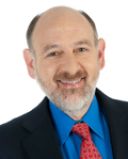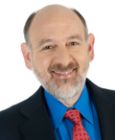Psychiatry
Psychiatry: The Measureless Medicine
Psychiatry: The Measureless Medicine
Posted April 22, 2011
In The Breakthrough Depression Solution I refer to psychiatry as the "measureless medicine."
While other medical specialties recommend blood tests, X-rays, and other high-tech diagnostic equipment, psychiatrists only have the Diagnostic and Statistical Manual of Mental Disorders (DSM) and perhaps good listening skills. The DSM, currently in its 4th edition, is the bible of the mental health profession containing descriptions and symptom lists for every "official" mental health diagnosis.
Visualize the experience of a patient in a psychiatrist's office. The patient enters, uncertain of what to expect. There's no poking or prodding with instruments, no hospital gown to wear, and no blood pressure to take. Instead, someone with pen and paper or IPad asks, "What brought you in today? What have you been experiencing? Describe a typical day."
The anxious patient slowly begins to share and over time rattles off a list of symptoms. Note how many are physical:
It takes me hours to fall asleep.
Muscle pain - I feel it all over my body.
Some days I forget to eat, other days I eat more than I ever have before.
I don't see my friends much anymore.
I have no desire to be intimate with my partner.
I wake up with an overwhelming sadness every day.
The psychiatrist listens intently, only intruding to ask the patient to further define or describe feelings or situations. By the end of the appointment the psychiatrist makes a subjective diagnosis, "You are depressed."
But is it that simple?
Psychiatry, unlike any other form of medicine, must rely on patient reported symptoms for diagnoses and to determine treatment. There are no tests for a "depression germ" and no biological measurements for a "depression marker." In other words, the causes, treatments, and outcomes can't fully be defined, explained or measured in any meaningful way for appropriate and effective treatment of depression.
Instead, psychiatrists turn to the sole tool they were trained with, the DSM, to diagnose illnesses.
Each diagnosis in the DSM is accompanied by a list of symptoms unique to that diagnose. Consider the evolution of the DSM:
- DSM-I in 1952 contained 107 diagnoses and was 132 pages
- DSM-II in 1968 contained 180 diagnoses and was 119 pages
- DSM-III in 1980 contained 226 diagnoses and was 494 pages
- DSM-IV in 1994 contained 365 diagnoses and was 886 pages
In the past 42 years there has been a 340% increase in the number of diagnoses. The 5th edition, set to publish in 2013, may increase in size with a few new additions. For consideration in the new edition are Temper Dysregulation Disorder with Dysphoria and Hypersexual Disorder. Are these really new disorders or are pharmaceutical companies hoping for new indications for their existing drugs?
Temper Dysregulation Disorder is a diagnosis for children who do not meet the criteria for bipolar disorder. I thought adolescence by definition was a neurodevelopmental period of dysregulated mood. And Hypersexual Disorder? Which group of psychiatrists will determine the criteria for this disorder?
Relying on patient reported symptoms and an ever-growing book of diagnoses has embedded the field of psychiatry within a pharmacological model for treatment. In keeping with our society's quick-fix mentality, it's easy and convenient to find a diagnosis in the DSM and then prescribe medication that's been FDA-approved for its treatment. When psychiatrists prescribe medication in this manner they are not treating the individual, but rather the "crowd." Psychiatrists typically choose medications based on personal favorites rather than science-based research.
Insurance companies reinforce this model of treatment. As noted in a recent New York Times article, "A psychiatrist can earn $150 for three 15-minute medication visits compared with $90 for a 45-minute talk therapy session." By setting this pricing model insurance companies are encouraging 15 minute "med checks" in which psychiatrists meet with patients solely to adjust or change medication. No therapy takes place during the med check.
Is it surprising that polypharmacy is so common? Nearly 60% of office-based psychiatric visits from 2005 to 2006 resulted in prescriptions for 2 or more psychotropic medications.
Does symptom-based treatment with medication or a treatment model of 15 minute med checks work? Not as good as we like.
Standard treatment for depression brings about a complete or nearly complete elimination of symptoms in only 33% of patients, and in roughly 70% of those with depression, it recurs.
Perhaps it's time for psychiatry to stop being a "measureless" medical specialty and begin to measure all aspects of the brain and body. By embracing an integrative medical approach, including comprehensive medical testing that analyzes each patient's unique genetic, biochemical and nutritional status, maybe depression can be effectively treated.
Over 20 years in the practice of psychiatry has convinced me that objective biological measurements, such as simple laboratory tests, can help guide and treat depression. Rather than randomly prescribe medication, these tests can help guide medication selection leading to more effective treatment.




